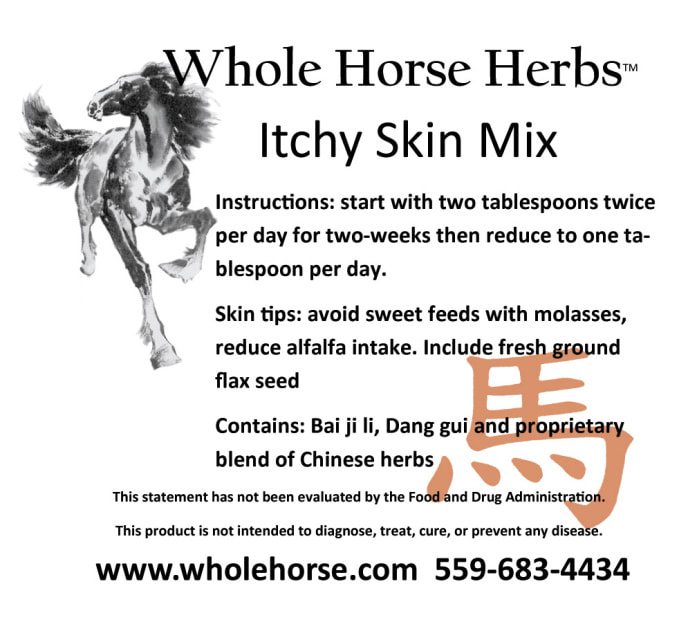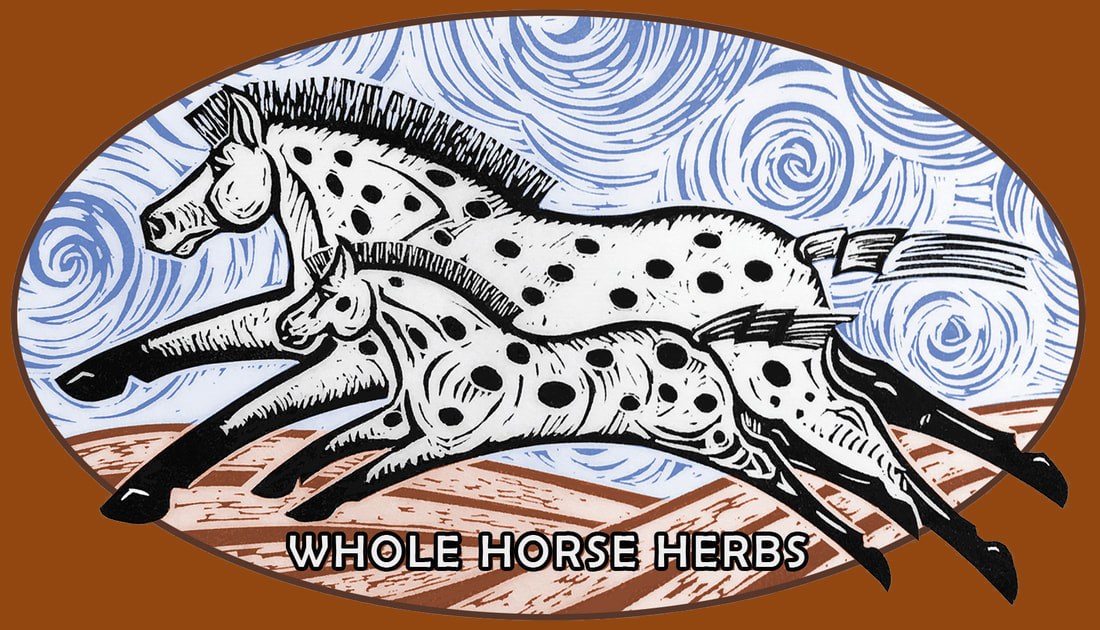|
It happens every year - your horse is rubbing out her lovely tail or is covered with hives when the trees in your yard bloom. What can you do? Herbs can help our horses cope with the challenges of seasonal skin allergies.
Seasonal skin allergies can be among the most frustrating and difficult problems encountered by horses and owners alike. One of the most difficult aspects of treating skin allergies is determining what is actually is stimulating the reaction. It can be almost anything - insect bites, foods, supplements, plants, pollution or chemicals are all possible culprits. Ideally, if we can identify the offending substance and remove it, or move the horse, this is a good first step in a management plan followed by building immunity and reducing the allergic inflammatory response., The following herbs are a few options to support your horse through a difficult allergy season: Spirulina is a variety of blue-green algae grown in fresh water. Spirulina is high in vitamins, minerals, protein, amino acids and omega 3 and 6 oils. Nutrient rich Spirulina was utilized as a food by the Aztecs in pre-colonial Mexico. Considered by many as a “whole food,” Spirulina is a powerful immuno-stimulant and anti-inflammatory with strong anti-allergy effects. It is ideal nutritional support for horses prone to allergic skin reactions. It enables the body to be less reactive to allergens and external irritants. One-half to one tablespoon daily is the recommended amount. Huo ma ren (Fructus cannabis) is Chinese hemp seed. Chinese hemp seed is rich in oil, promoting hair growth while nourishing the skin. Huo ma ren is high in omega 3 and 6 oils, is anti-inflammatory and helps reduce itching. I recommend using a mix of fresh ground flax seed and/or wheat germ in addition to Huo ma ren. One-fourth to one-half cup of this mixture per day is ideal for supporting hair, hoof and skin. Da qing ye (Folium isatidis) means "big green leaf" in Chinese. We know the big green leaves of Da qing ye as indigo. Over the centuries, indigo was highly prized a dye in Asia and Europe. From the TCM perspective, Da qing ye is a bitter and cold herb. As such, it clears heat (inflammation) and eliminates toxins (allergens). It is antimicrobial and anti -inflammatory. Da ging ye, like the supplement MSM, contains natural sulfur. Sulfur has a long history of use in skin remedies dating back to biblical times. Sulfur is often prescribed homeopathically for skin conditions as well. Applied topically, a solution of strong Da ging ye tea mixed with a few drops of tea tree oil is very effective in the treatment of fungal skin infections, fly bite allergies, weepy hives and scratches. Note of caution: Da ging ye should be used internally with caution. Horses with sulfur allergies or sulfonamide antibiotic sensitivities or deficient individuals prone to diarrhea or with weak digestive systems should avoid internal use completely. I also recommend eliminating sweet and heat producing foods from the buckets of horses suffering from skin allergies. From the traditional Chinese medicine perspective, feeds containing molasses, sugar or corn create a condition of internal dampness and heat which aggravate itchy, inflamed skin.
2 Comments
|
Whole Horse BlogOur Blog is devoted to horse health and well being. We can provide you with tips, information and resources. Please feel free to jump into the conversation. Archives
September 2020
Categories
All
|
WHOLE HORSE HERBS
|
|
Whole Horse Herbs
P.O. Box 544 Oakhurst, CA 93644-0544 559-683-4434 |
Copyright ©1996-2023 by Gloria Garland / Whole Horse Herbs


 RSS Feed
RSS Feed


